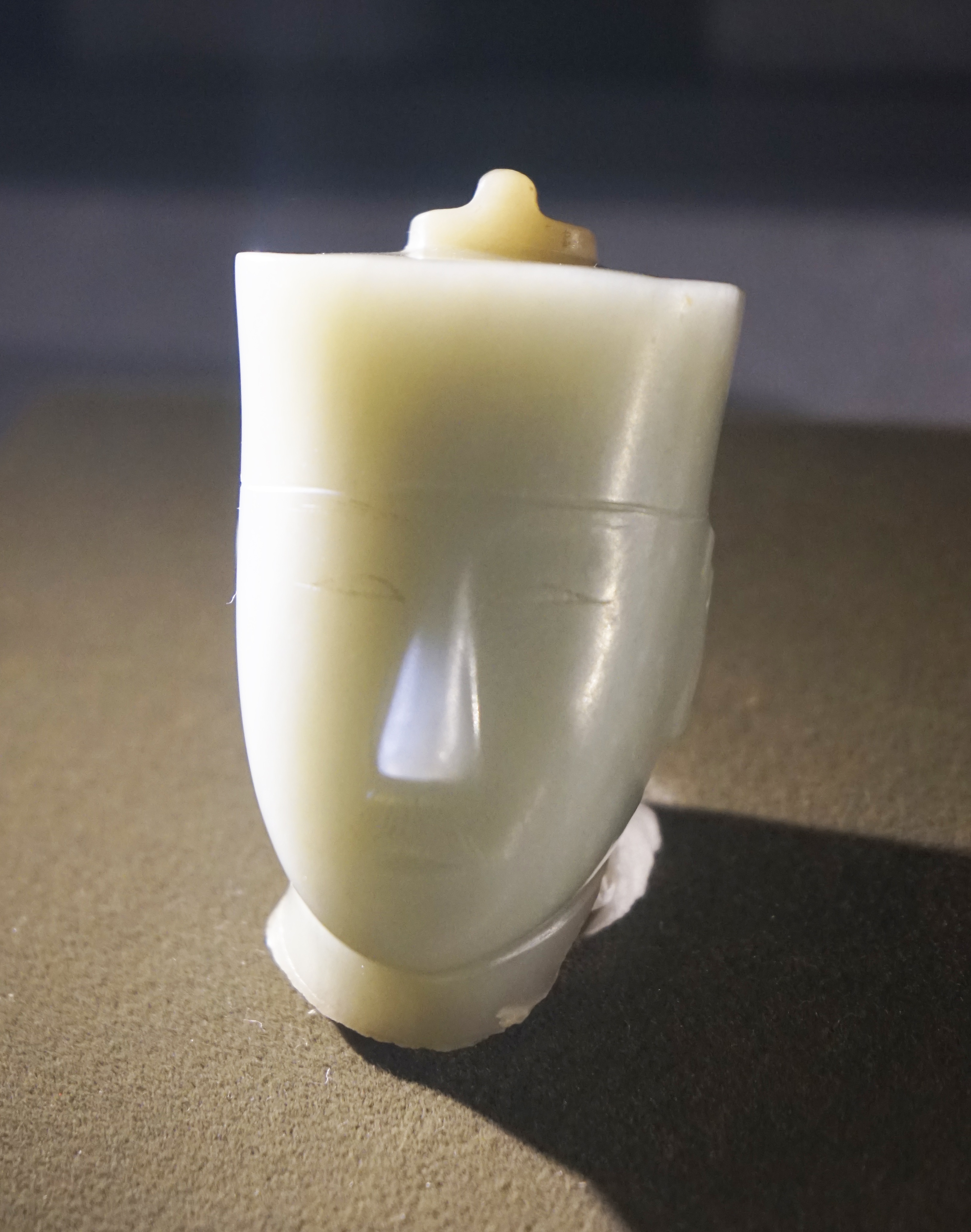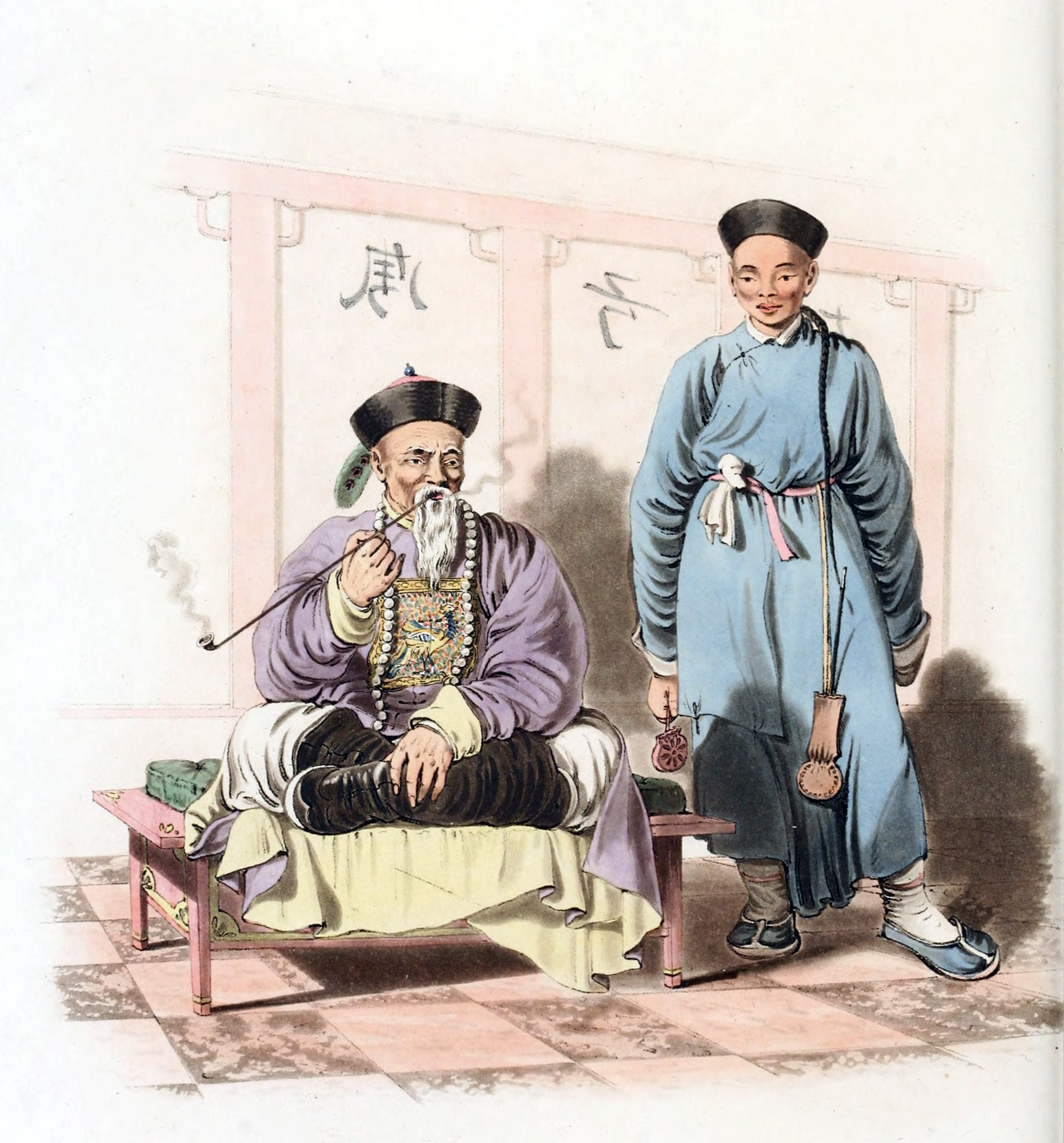|
Emperor Yuan Of Han
Emperor Yuan of Han (Liu Shi 劉奭; 75 BC – 8 July 33 BC) was an emperor of the Chinese Han dynasty. He reigned from 48 BC to 33 BC. Emperor Yuan promoted Confucianism as the official creed of the Chinese government. He appointed Confucius adherents to important government posts. However, at the same time that he was solidifying Confucianism's position as the official ideology, the empire's condition slowly deteriorated due to his indecisiveness, his inability to stop factional infighting between officials in his administration, and the trust he held in certain corrupt officials. Family background When Emperor Yuan was born as Liu Shi in 75 BC, his parents Liu Bingyi and Xu Pingjun were commoners without titles. Bingyi was the great-grandson of Emperor Wu, and his grandfather Liu Ju was Emperor Wu's crown prince, until he was forced by Emperor Wu's paranoia into a failed rebellion in 91 BC while Bingyi was still just an infant. The aftermath of the failed rebellion ... [...More Info...] [...Related Items...] OR: [Wikipedia] [Google] [Baidu] |
List Of Emperors Of The Han Dynasty
The Emperor of China, emperors of the Han dynasty were the supreme heads of government during the second Dynasties in Chinese history, imperial dynasty of China; the Han dynasty (202 BC – 220 AD) followed the Qin dynasty (221–206 BC) and preceded the Three Kingdoms (220–265 AD). The era is conventionally divided between the Han dynasty#Western Han, Western Han (202 BC – 9 AD) and Han dynasty#Wang Mang's reign and civil war, Eastern Han (25–220 AD) periods. The Han dynasty was founded by the peasant rebel leader (Liu Bang), known posthumously as Emperor Gaozu of Han, Emperor Gao (''r''. 202 –195 BC) or Gaodi. The longest reigning emperor of the dynasty was Emperor Wu of Han, Emperor Wu (''r''. 141–87 BC), or Wudi, who reigned for 54 years. The dynasty was briefly interrupted by the Xin dynasty of the former regent Wang Mang, but he was killed during a rebellion on 6 October 23 AD. The Han dynasty was reestablished by Liu Xiu, known posthumously as Emperor Guangwu of Ha ... [...More Info...] [...Related Items...] OR: [Wikipedia] [Google] [Baidu] |
Zhang Anshi
Zhang Anshi (; died 62 BCE), courtesy name Ziru (子孺), was a Chinese politician of the Han Dynasty. He was a son of Zhang Tang. He was a precocious student who attracted attention in a famous incident. During an Imperial progress, to which he was attached in a subordinate capacity, three boxes of books were missing. However, he was able to repeat the contents of each so accurately that upon the recovery of the books, they were found to tally exactly with his description. Emperor Wu immediately appointed him to high office; Emperor Wu promoted him further after Zhang Tang's death. He played a part in deposing Liu He as emperor, and subsequently rose under Emperor Xuan to be President of the Board of War, in succession to Huo Guang. After his death, his posthumous title was "Marquis Jing" (敬侯). Zhang Anshi was well known to be cautious in both his mannerisms and how he is perceived by others. As the President of the Board of War, he came to know that Emperor Xuan had promot ... [...More Info...] [...Related Items...] OR: [Wikipedia] [Google] [Baidu] |
Kingdom Of Huaiyang
Huaiyang (淮陽國), was a kingdom/principality that existed intermittently during the Han dynasty. Its territories was located in modern eastern Henan and northwestern Anhui. Huaiyang initially covered the later Chen, Yingchuan and Runan commanderies and a total of more than 60 counties. In 196 BC Liu You (劉友), a son of the Emperor Gaozu and the first Prince of Huaiyang, was granted the territory, but was moved to Zhao two years later. Liu Qiang (劉彊), a son of the Emperor Hui, took over Huaiyang. After Qiang's death, the fief passed to his brother Wu (武), who was killed in the Lü Clan Disturbance in 180 BC. At this time, Huaiyang was already reduced to the equivalent of one commandery. Both the Emperor Wen and Emperor Jing appointed one of their sons to Huaiyang, however, in both cases, the prince was eventually relocated to another principality, and Huaiyang became administered by the central government as the Huaiyang Commandery. In 63 BC, Emperor Xuan grant ... [...More Info...] [...Related Items...] OR: [Wikipedia] [Google] [Baidu] |
Legalism (Chinese Philosophy)
Legalism or ''Fajia'' is one of the six classical schools of thought in Chinese philosophy. Literally meaning "house of (administrative) methods / standards (法, Fa)", the Fa "school" represents several branches of "men of methods", in the west often termed " realist" statesmen,who played foundational roles in the construction of the bureaucratic Chinese empire.Peng He 2011. p. 646. The Difference of Chinese Legalism and Western Legalism The earliest persona of the Fajia may be considered Guan Zhong (720–645 BC), but following the precedent of the ''Han Feizi'' (c. 240 BC), Warring States period figures Shen Buhai (400–337 BC) and Shang Yang (390–338 BC) have commonly been taken as its "founders." Commonly thought of as the greatest of all "Legalist" texts, the ''Han Feizi'' is believed to contain the first commentaries on the ''Dao De Jing'' in history.Ewan Ferlie, Laurence E. Lynn, Christopher Pollitt 2005 p. 30, ''The Oxford Handbook of Public Management''Pines, Y ... [...More Info...] [...Related Items...] OR: [Wikipedia] [Google] [Baidu] |
Confucian
Confucianism, also known as Ruism or Ru classicism, is a system of thought and behavior originating in ancient China. Variously described as tradition, a philosophy, a Religious Confucianism, religion, a humanistic or rationalistic religion, a way of governing, or a way of life, Confucianism developed from what was later called the Hundred Schools of Thought from the teachings of the Chinese philosophy, Chinese philosopher Confucius (551–479 BCE). Confucius considered himself a transmitter of cultural values inherited from the Xia dynasty, Xia (c. 2070–1600 BCE), Shang dynasty, Shang (c. 1600–1046 BCE) and Western Zhou, Western Zhou dynasties (c. 1046–771 BCE). Confucianism was suppressed during the Legalism (Chinese philosophy), Legalist and autocratic Qin dynasty (221–206 BCE), but survived. During the Han dynasty (206 BCE–220 CE), Confucian approaches edged out the "proto-Taoist" Huang–Lao as the official ideology, while the emperors mixed both with the real ... [...More Info...] [...Related Items...] OR: [Wikipedia] [Google] [Baidu] |
Chinese Classic Texts
Chinese classic texts or canonical texts () or simply dianji (典籍) refers to the Chinese texts which originated before the imperial unification by the Qin dynasty in 221 BC, particularly the "Four Books and Five Classics" of the Neo-Confucian tradition, themselves a customary abridgment of the "Thirteen Classics". All of these pre-Qin texts were written in classical Chinese. All three canons are collectively known as the classics ( t , s , ''jīng'', lit. "warp"). The term Chinese classic texts may be broadly used in reference to texts which were written in vernacular Chinese or it may be narrowly used in reference to texts which were written in the classical Chinese which was current until the fall of the last imperial dynasty, the Qing, in 1912. These texts can include ''shi'' (, historical works), ''zi'' (, philosophical works belonging to schools of thought other than the Confucian but also including works on agriculture, Traditional Chinese medicine, med ... [...More Info...] [...Related Items...] OR: [Wikipedia] [Google] [Baidu] |
Grand Empress Dowager Wang
Wang Zhengjun (; 71 BC – 13 AD), officially Empress Xiaoyuan (孝元皇后), later and more commonly known as Grand Empress Dowager Wang, born in Yuancheng (modern Handan, Hebei), was an empress during the Western Han dynasty of China, who played important roles during the reigns of five successive Han emperors (her husband, son, two stepgrandsons, and stepgreat-grandnephew) and later (according to traditional historians, unwittingly) led to the usurpation of the throne by her nephew Wang Mang. She is largely viewed sympathetically by historians as an unassuming and benevolent if overly doting woman who suffered much in her long life, who tried to influence the empire as well as she could, and tried to use her power for the benefit of the empire, and who was not a party to her nephew's machinations, but whose failure, leading to the downfall of the Western Han Dynasty, was her overdependence on her clan (the Wangs). Early life Wang was born the second daughter of Wang Jin, the ... [...More Info...] [...Related Items...] OR: [Wikipedia] [Google] [Baidu] |
Empress Wang (Xuan)
Empress Wang (王皇后, personal name unknown) (died 16 BC), formally Empress Xiaoxuan (孝宣皇后), semi-formally Empress Dowager Qiongcheng (邛成太后, to distinguish her from her daughter-in-law Empress Wang Zhengjun, with the same family name, but otherwise unrelated to her) was an empress during Han Dynasty. She was the third wife of Emperor Xuan. Early life Empress Wang's father Wang Fengguang (王奉光) was a hereditary acting marquess (關內侯) when he met Emperor Xuan while he was still a commoner, based on their common interest in cockfighting. According to legend, she was betrothed to several men in succession, but each time her fiancé died before marriage could occur. After Emperor Xuan became emperor, he took her as a concubine (as Consort Wang), but she was not one of his favourites. Emperor Xuan's first wife, Empress Xu Pingjun was poisoned in 71 BC by the ambitious Xian (顯), the wife of the regent Huo Guang, who wanted to make her daughter Huo Chen ... [...More Info...] [...Related Items...] OR: [Wikipedia] [Google] [Baidu] |
Taizi
Taizi () was the title of the crown prince of imperial China. Succession Traditional Confucian political theory favored strict agnatic primogeniture, with younger sons displaying filial obedience to the eldest upon the passing of the father. This rather straightforward system was somewhat complicated by polygamy: since later wives were subordinated to the first, their children even when born first were likewise subordinated to hers. Following Lu Gu's conversion of Liu Bang to Confucianism in the early 1st century BC, Chinese dynasties observed it in theory though not always in practice. Liu Bang himself began to favor Concubine Qi, a later concubine, to his primary empress, Lü Zhi, and doubted the competence of his heir Liu Ying. Even worse conflicts could occur when invaders previously observing their own rules of inheritance began to sinicize, as happened to the 10th-century Liao dynasty. Under the Ming dynasty, the traditional Confucian principles of succession were ... [...More Info...] [...Related Items...] OR: [Wikipedia] [Google] [Baidu] |
Empress Huo Chengjun
Huo Chengjun () (died 54 BC) was an empress of the Chinese Western Han dynasty. She was the second wife of Emperor Xuan. Her father was the statesman Huo Guang, who served as regent for Emperor Zhao and who remained exceedingly powerful during Emperor Xuan's reign until his death in 68 BC. Her mother's name was Xian (). Family background It is not known when Chengjun was born to Huo Guang and Lady Xian. What is known is that she grew up in a household with such great power that in many ways, it regarded itself and was regarded as the real imperial household. She became accustomed to luxury living when she was young, and part of that was manifested in her customs of rewarding her servants with great wealth. She had an older sister who married Shangguan An, a son of Shangguan Jie; their daughter became Emperor Zhao's wife. Marriage In 74 BC, Emperor Zhao died at age 20. Huo initially selected his nephew, Prince He of Changyi as the new emperor. However, after Prince He qu ... [...More Info...] [...Related Items...] OR: [Wikipedia] [Google] [Baidu] |






